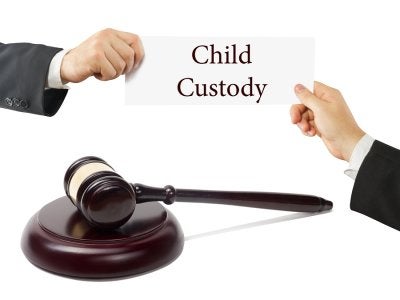-
Sharing Legal Custody: Tips for Dealing with Disputes
After a divorce, children will primarily reside with one parent, even if both parents share custody. There are actually two different types of custody: physical and legal. Physical custody refers to where the kids maintain residency and legal custody refers to the right to make major decisions for the kids’ upbringing. If you share legal custody with your ex, you can speak with your child custody attorney in Owings Mills about strategies of successfully co-parenting.

Go to Mediation
The most effective way to deal with legal custody disputes is to prevent them from occurring. However, even if a dispute has already occurred, child custody mediation can help. You and the other parent will sit down with a neutral mediator, who will help you work toward a mutually agreeable solution that is in the best interests of the children. Mediators can facilitate discussions regarding the children’s religious upbringing, education, and healthcare, among other decisions.
Keep Each Other in the Loop
After the divorce, you may wish to avoid your ex completely, but this simply isn’t possible when you share children with him or her. Parents can reduce the possibility of a dispute by agreeing on communication methods and frequency in advance, and by agreeing to keep each other in the loop when something comes up. For example, if you receive updates from the school about soccer games, school pictures, or progress reports, you should promptly send the other parent a copy of the notice. Similarly, the other parent should let you know promptly if a child fell ill during visitation and needs to take antibiotics. For other types of medical treatment, such as administering psychiatric drugs, the permission of both parents is required.
Set Aside Emotions
When a dispute does arise, it’s helpful to spend a few days thinking about the matter before wasting more time arguing with your ex. This helps you get your emotions in check, think about the issue in a logical way, and develop ideas for compromising with your ex. Remind yourself that your only priority is to promote the best interests of your kids.
Put All Agreements in Writing
Secondary disputes can sometimes arise if one parent “forgets” about the agreement or claims that he or she never agreed at all. Written communication is always best. For instance, if you and your spouse agree to take the kids to different religious centers, sign a written agreement that neither of you will disparage the other religion in front of the kids.
-
Defining Legal Custody
If you’re going through a divorce and are concerned about child custody in Owings Mills , or anywhere in the Baltimore metro region, you should hire an experienced family law attorney. He can help you understand child custody laws, request a child custody arrangement, and negotiate child support payments. Child custody is a legal arrangement involving the rights that each parent is awarded regarding the child’s physical and mental care.
There are two different types of child custody that can be awarded to a parent: physical custody, and legal custody. Physical custody is the determination of where a child lives on a day-to-day basis. Physical custody can be joint custody or sole custody, depending upon the results of divorce mediation or a judge’s order. Legal custody concerns the right of a parent to make long-term decisions about a child’s well-being and upbringing.
Legal custody allows a parent to make major decisions regarding religious education, choice of schools, cultural education, extracurricular activities, and health care. Legal custody is typically awarded to both parents, unless one parent is determined to be unfit or incapable of making these decisions. Joint legal custody requires that the parents consult with each other and reach agreements regarding the child’s upbringing and welfare.

-
What Are the Benefits of Joint Custody?
Although divorce can be emotionally difficult for couples, it is particularly devastating for children. Child custody arrangements that allow for joint legal and shared physical custody are usually the best choice for the children because they minimize the negative effects of a broken household. If your family law attorney is working on your child custody case in Owings Mills, you should consider the possibility of joint custody . With joint custody, the children are less likely to blame themselves for the divorce or to feel as though one or both parents do not love them anymore.
Collaborative joint custody allows children to grow and develop in a healthy manner, and to feel that they can love both parents equally without betraying the other parent. One key aspect of making joint custody work after a divorce is to enforce continuity of household rules. Children who must adapt to different rules and expectations depending on which household they are in are more likely to feel resentful. Continuity across households prevents kids from feeling as though they’re “caught in the middle.”

